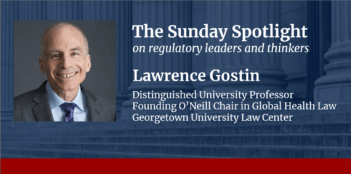
Regulators should expand the types of medical professionals who can prescribe COVID-19 drugs.
Should doctors be the only ones to prescribe COVID-19 drugs?
Currently, the prevailing global practice is that only doctors can prescribe COVID-19 drugs—a policy in effect in jurisdictions such as in Hong Kong and England. There are strong arguments, however, in favor of broadening the means of access to COVID-19 drugs such as Lagevrio and Paxlovid.
There is already growing momentum for broadening how such drugs are distributed. For example, in the United States, certain patients can obtain Paxlovid from pharmacists. Canada is at the forefront of adopting this practice, so that pharmacists and nurse practitioners can prescribe Paxlovid in a number of provinces. Supporters have made similar proposals for delegating to pharmacists in Australia, but they have encountered strong opposition from doctors.
The right to health under the International Covenant on Economic, Social and Cultural Rights involves achieving the “highest attainable standard” of health with inclusive and timely medical attention. To implement the right to health as defined by the United Nations, medical practitioners should consider COVID-19 drugs an “essential medicine.” This would involve making COVID-19 drugs “continuously available and affordable at public or private health facilities or retail pharmacies that are within one hour’s walk from the homes of the population.”
Given that Canada has demonstrated that access to drugs can be diversified through pharmacists and nurses, other countries should follow suit. Delegating to other health care professionals also accords with the “progress realization” requirement because Canada and the United States have already trailblazed on this practice.
Although governments have a wide margin of discretion when formulating public health policies and applying the right to health, the balancing exercise should take into account the benefits of expanding access. Broadening the means of access would improve inclusivity and accessibility to effective medications, relieve the burden on doctors to prescribe drugs, and thereby contribute to controlling impacts of the pandemic.
Gaining access to COVID-19 drugs via doctors is not necessarily easy in some countries. Financial reasons may prevent marginalized and less privileged persons from seeking medical consultations. In Australia, the drugs themselves cost around AU$45 after the government’s heavy subsidy and AU$1,000 without the subsidy. To qualify for subsidized drugs, patients will have to meet certain criteria such as old age or a certain degree of severity in symptoms for younger patients.
Of course, one would have to pay the same costs for drugs even if other medical practitioners can offer access. Their services, however, can be cheaper than seeing a general practitioner, bearing in mind that their fees are reportedly rising in countries such as Australia. Some U.S. states, including Massachusetts and Washington, offer free telehealth consultations, but patients may face other fees for testing, consultation in person, and follow-ups. Given these sometimes prohibitive costs, economic accessibility is a vital limb of the right to health.
Drug costs are not necessarily the biggest obstacle to access because COVID-19 drugs are free in some places such as the United States and Hong Kong. Rather, there can be practical difficulties in terms of organizing travel from remote areas to obtain drugs, or possessing digital skills to access telehealth if it is available. Especially when infection cases surge with accompanying restrictions and social panic, hospitals and clinics may lack adequate capacity to deal with cases swiftly, even in advanced countries such as the United States.
In Australia, the waiting time to see a general practitioner ranges from three to four days—very close to the prime time for taking Paxlovid, which is within five days of developing symptoms—and this duration may grow depending on the circumstances. When even the more affluent economies encounter these issues, it is easy to imagine how the situation could be worse in developing and under-developed countries.
The counterarguments against widening access are not compelling. Some drug companies contend that doctors must prescribe COVID-19 drugs because of the risk of drug-drug interactions. The drug is also not suitable for certain groups of people, especially those with kidney or liver issues.
These arguments are not persuasive. In the United States and Canada, pharmacists are trusted to act as guards for screening suitability. There is no strong reason why the same trust cannot be afforded to other health care professionals in other countries. In addition, people with severe or chronic illness would likely qualify for subsidized and prioritized treatment at hospitals, so the people who will benefit from improved access via pharmacists or nurses have cases that are not as urgent but nevertheless need support.
Another counterargument is that broadening access could lead to abusive use or unnecessary stockpiling. This would prevent efficient distribution of the already-limited supply of COVID-19 drugs. This view, again, is not persuasive, because Canada restricts access via pharmacists or nurse practitioners to those who have tested positive. On top of this professional gatekeeping, the cost of COVID-19 drugs would leave little room for irresponsible purchase.
Furthermore, broadening access via other health care professionals does not need to hinder the official detection and isolation of infected persons. Those persons could be required to self-report and self-isolate at home even if hospitalization is not necessary.
Moreover, the unfortunate fact that there has already been a black market for COVID-19 drugs strongly indicates that there is real, yet unaddressed demand. Improved access would greatly benefit those segments of society.
In light of all the above reasons, public health considerations support broadening access to COVID-19 drugs—which have become “essential medicine.” Governments around the world should seriously consider opening more channels for people to obtain COVID-19 drugs.




